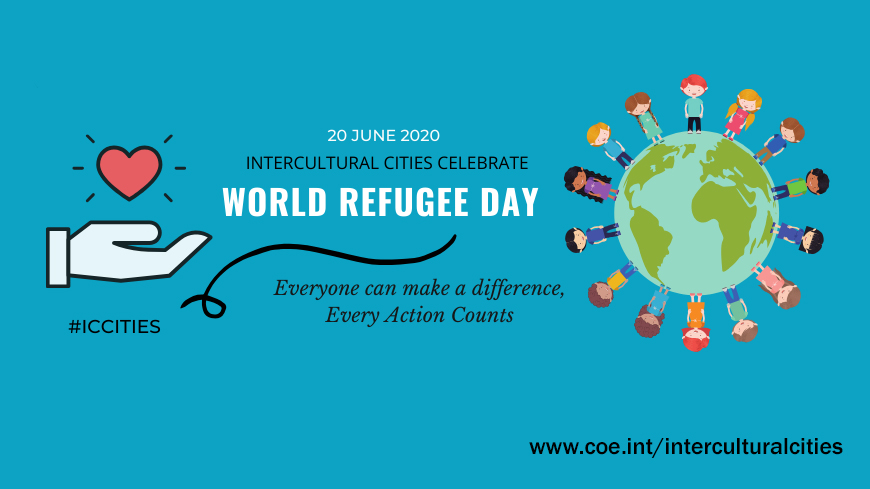No One Left Behind

- Summary
- Fact Sheet
- Synergy and Transfer
- More Information
No One Left Behind is a project of Erasmus+ youth mobility. It lasted from 1.1.2021 till 30.6.2022, with 9 countries covered. It covers topics of EU Citizenship, EU awareness and democracy, integration of refugees and inclusion – equity.
Objectives were to contribute significantly to meeting the needs of refugees, migrants and/or seeking asylum purposes. Contributing in an accessible and proactive way to a more equitable world was the main motto of this project, where the following stand out: promoting the social inclusion of refugee families; to develop initiatives to promote and reinforce European identity and identity, that is, dialogue, respect for intercultural and interreligious citizenship; develop skills and empower youth workers to work in their communities in order to break stereotypes and prejudices regarding refugees, migrants/or asylum seekers; develop innovative actions based on good practices regarding the education and training of young people, in a european level.
Target Groups:
The profile of young people with fewer opportunities was identified and who are refugees and/or face cultural and/or geographical obstacles and/or have economic difficulties and who, as such, share the social problem, needs and objectives of the project. It is important that they work directly or indirectly with refugees and/or migrants. They must be predisposed to become agents of change aimed at promoting equal opportunities, respect, diversity and interculturality.
Special support required:
Mobility of youth workers was preceded by sessions to prepare the participants and followed by activities to disseminate the results obtained. In all the different phases of the project, the Non-Formal Education methodology was always used, which provided for the participation of all and co-responsibility, the focus on the participants, in the context of experimental, practical, shared and reflective learning, aiming at the use of methods combined in a safe learning environment in order to transform social reality. Monitoring events across the project were also carried out, which consisted of monitoring participants and partner organizations, which in general was based on the active involvement of participants to expedite any problem, need or idea so that at any time it was possible to adjust in order to meet the different realities.
Innovation:
It is focused on using Non-Formal Education as the primary methodology, allowing for participatory, experiential learning environments that empower young people with fewer opportunities. This focus on experiential learning in a safe, reflective space is an innovative element in addressing complex social issues like refugee integration.
It implemented a proactive approach by preparing youth workers before mobility sessions and engaging them in post-mobility dissemination activities. This holistic approach ensures that participants not only gain skills but also share knowledge, ensuring the project’s long-term impact.
The inclusion of monitoring events involving active feedback from participants throughout the project allowed for dynamic adjustments, showcasing flexibility and responsiveness to individual and collective needs.
It promotes social inclusion and intercultural dialogue while breaking down stereotypes and empowering youth workers to act as agents of change. The focus on NFE, combined with refugee integration and European identity development, offers innovative educational practices across European borders.
The project has significant potential for synergy and transfer:
The Non-Formal Education methodology used could be applied across other projects dealing with social inclusion and youth empowerment.
The training and empowerment of youth workers creates a transferable model where communities can replicate efforts in fostering intercultural dialogue and breaking down stereotypes about refugees and migrants.
There is clear alignment with other EU projects focused on equity, social inclusion, and the empowerment of marginalized groups, particularly in the context of refugee support. The methodology and best practices could easily be adapted to similar contexts in other countries or regions, particularly in educational and community settings working with marginalized groups like migrants and refugees.
Coordinator: Reencontro, associação social, educativa e cultural (I.P.S.S.)
Participant countries: Germany, Greece, Hungary, Italy, Lithuania, Netherlands, Portugal, Sweden, Türkiye
